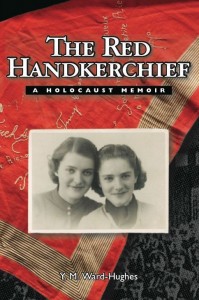
<!DOCTYPE html PUBLIC "-//W3C//DTD HTML 4.0 Transitional//EN" "http://www.w3.org/TR/REC-html40/loose.dtd“>
NEVER FORGET…
by Melissa Chaiken | Section Editor
I am a passionate reader who enjoys exploring a wide range of genres, including fiction, non-fiction, classic literature, historical novels, mysteries, thrillers, and biographies. Nevertheless, I occasionally find myself feeling reluctant when a book is recommended to me or is selected for my book club, particularly if it relates to the Holocaust. I often feel overwhelmed by the thought of reading yet another book on this topic. It’s heart-wrenching and distressing to confront the horrific treatment of individuals during one of the darkest chapters in history. However, I remind myself of the significance of these stories. Isn’t that what it’s all about? In our comfortable lives, it’s difficult to imagine the realities faced by those in Nazi concentration camps or under the tyranny of a power-hungry regime. I reflect on how our lack of true hardship may be detrimental to us and especially to future generations. It is crucial to remember these tragic events so they are not erased and do not happen again. What better way to preserve these memories than through storytelling?
Recently, I delved into three books that recount the stories of the Nazis and their reign of terror during World War II. Set in three different countries devastated by Nazi occupation—Belgium, France, and Holland—each story has its own unique perspective but shares the common thread of Nazi oppression that altered and ruined countless lives.
 The first book is *The Woman I Wanted To Be* by Diane von Furstenberg. In this memoir, the famous fashion designer reflects on her upbringing in Brussels and her life with her mysterious mother, Lily. As a child, she didn’t quite understand why her mother bore two lines of blue tattooed numbers on her left arm; in fact, she yearned for similar markings so her arms would not appear so plain. Ultimately, Ms. von Furstenberg learned that her mother was among the 25,631 Belgian Jews who were deported to concentration camps during the Holocaust. Lily narrowly survived Auschwitz, weighing only fifty-nine pounds upon her liberation. Despite her dark experiences, Lily’s unyielding spirit and refusal to be a victim became invaluable lessons for her daughter. Ms. von Furstenberg acknowledges that her mother instilled in her the values of independence, freedom, and self-reliance, recognizing that her mother was “processing all of her past frustrations and unhappy experiences and packaging them into strength and positivity. Independence and freedom were essential to her because she had lost both. Self-reliance allowed her to survive.”
The first book is *The Woman I Wanted To Be* by Diane von Furstenberg. In this memoir, the famous fashion designer reflects on her upbringing in Brussels and her life with her mysterious mother, Lily. As a child, she didn’t quite understand why her mother bore two lines of blue tattooed numbers on her left arm; in fact, she yearned for similar markings so her arms would not appear so plain. Ultimately, Ms. von Furstenberg learned that her mother was among the 25,631 Belgian Jews who were deported to concentration camps during the Holocaust. Lily narrowly survived Auschwitz, weighing only fifty-nine pounds upon her liberation. Despite her dark experiences, Lily’s unyielding spirit and refusal to be a victim became invaluable lessons for her daughter. Ms. von Furstenberg acknowledges that her mother instilled in her the values of independence, freedom, and self-reliance, recognizing that her mother was “processing all of her past frustrations and unhappy experiences and packaging them into strength and positivity. Independence and freedom were essential to her because she had lost both. Self-reliance allowed her to survive.”

— Anthony Doerr, All the Light We Cannot See
*All The Light We Cannot See* by Anthony Doerr provides an unconventional narrative focusing on a blind French girl, Marie-Laure, and a German orphan boy, Werner. Marie-Laure and her father are forced to flee their Paris home due to Nazi occupation and seek refuge with her reclusive great-uncle in Saint-Malo’s fortified city. Growing up with his sister in an orphanage, Werner becomes skilled in constructing and repairing radio equipment, which is crucial during World War II. His talents catch the attention of Nazi officials, leading to his enrollment in a Hitler Youth academy. As Werner hones his abilities, he becomes instrumental in the Nazi effort to track down and eliminate the French Resistance. Despite his upbringing and indoctrination by the Nazis, he starts to grasp the human cost of his skills. His journey brings him to Saint-Malo, where his and Marie’s lives ultimately intersect. While not overtly about the Holocaust, this novel powerfully conveys the Nazi brutality faced by all who opposed their campaign against the Jewish populace.

– Maria Spronk-Hughes, The Red Handkerchief
*The Red Handkerchief: A Holocaust Memoir* by Y.M. Ward-Hughes tells the brave true story of the author’s mother and aunt, detailing their capture and imprisonment by the Nazis. I was taken aback to discover that the two sisters recounting their experiences in a Nazi prison and concentration camp were not Jewish but Roman Catholic. In 1941, the Dutch sisters, Maria (Rie) and Catharina (Katy) Spronk, worked at a raincoat factory commandeered by the Nazis, where they were forced to produce uniforms. The sisters, aged 19 and 20, participated in a nationwide strike protesting the Nazi treatment of Dutch Jews. They continued to aid the Dutch Resistance for the following years as the Nazis tried to deport all Dutch Jews to concentration camps. In 1944, the sisters were captured by the Gestapo and sent to Weteringschans Prison. A few months later, they were transferred to Vught Concentration Camp and received red handkerchiefs as part of their uniforms. Rie had the women in her barracks sign the handkerchief; years later, she embroidered their names and messages onto it. For 57 years, Rie was hesitant to speak about her traumatic experiences, but her daughter persuaded her to share her story with Dr. Ariel Levy, a historian at the Houston Holocaust Museum. Dr. Levy emphasized the urgency of documenting these survivor stories, leading to the creation of the memoir. The red handkerchief became a powerful symbol of hope, friendship, and resilience, and is now showcased at the Holocaust Museum in Houston. *To order The Red Handkerchief online, please visit www.theredhandkerchief.com.*
The messages conveyed in these books serve as an enduring reminder of the senseless violence and suffering endured by countless innocent individuals. They are cautionary tales that emphasize how the Holocaust was not so long ago and that we all must take steps to ensure history does not repeat itself.
Have you visited the Dallas Holocaust Museum? Discover more information here.
Are you part of a book club? Do you have tips to share with our readers? Please send your thoughts to melissa@goodlifefamilymag.com.






